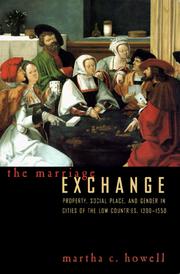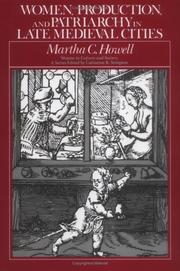| Listing 1 - 10 of 22 | << page >> |
Sort by
|
Article
Abstract | Keywords | Export | Availability | Bookmark
 Loading...
Loading...Choose an application
- Reference Manager
- EndNote
- RefWorks (Direct export to RefWorks)
Article
Abstract | Keywords | Export | Availability | Bookmark
 Loading...
Loading...Choose an application
- Reference Manager
- EndNote
- RefWorks (Direct export to RefWorks)
ZICHEM --- BRABANT (DUCHE) --- ARCHIVES COMMUNALES --- ARCHIVES JUDICIAIRES --- ZICHEM --- BRABANT (DUCHE) --- ARCHIVES COMMUNALES --- CATALOGUES --- ARCHIVES JUDICIAIRES --- CATALOGUES
Article
Abstract | Keywords | Export | Availability | Bookmark
 Loading...
Loading...Choose an application
- Reference Manager
- EndNote
- RefWorks (Direct export to RefWorks)
Article
Abstract | Keywords | Export | Availability | Bookmark
 Loading...
Loading...Choose an application
- Reference Manager
- EndNote
- RefWorks (Direct export to RefWorks)
ZICHEM --- PLAINES INONDABLES --- HISTOIRE ECONOMIQUE --- FRANCE --- ARCHIVES COMMUNALES --- RHIN --- SOURCES --- CONDITIONS SOCIALES --- ZICHEM --- PLAINES INONDABLES --- HISTOIRE ECONOMIQUE --- FRANCE --- ARCHIVES COMMUNALES --- CATALOGUES --- RHIN --- SOURCES --- 15E-16E SIECLES --- CONDITIONS SOCIALES --- 13E-16E SIECLES

ISBN: 0226355160 0226355152 9780226355160 Year: 1998 Volume: *33 Publisher: Chicago, Ill. University of Chicago Press
Abstract | Keywords | Export | Availability | Bookmark
 Loading...
Loading...Choose an application
- Reference Manager
- EndNote
- RefWorks (Direct export to RefWorks)
Based on extensive research in this archive, this book reveals how these documents were produced in a centuries-long effort to regulate --and ultimately to redefine-- property and gender relations. At the center of the transformation was a shift from a marital property regime based on custom to one based on contract. In the former, a widow typically inherited her husband's property; in the latter, she shared it with or simply held it for his family or offspring. Howell asks why the law changed as it did and assesses the law's effects on both social and gender meanings but she insists that the reform did not originate in general dissatisfaction with custom or a desire to disempower widows. Instead, it was born in a complex economic, social and cultural history during which Douaisiens gradually came to think about both property and gender in new ways. Medieval Douai was one of the wealthiest cloth towns of Flanders, and it left an enormous archive documenting the personal financial affairs of its citizens --wills, marriage agreements, business contracts, and records of court disputes over property rights of all kinds.
History of the Low Countries --- anno 1400-1499 --- anno 1500-1599 --- anno 1300-1399 --- Droit médiéval --- Law [Medieval ] --- Medieval law --- Middeleeuws recht --- Recht [Middeleeuws ] --- Husband and wife --- Marital property --- Law, Medieval --- History --- History. --- Law, Medieval. --- #VCV monografie 1999 --- Droit médiéval --- anno 500-1499 --- France --- Matrimonial property --- Property, Marital --- Property --- Man and wife --- Matrimonial regime --- Spouses --- Wife and husband --- Domestic relations --- Women --- Desertion and non-support --- Marriage law --- Married women --- Law and legislation --- Legal status, laws, etc. --- Flanders (County) --- Douai (France) --- Marital property - Flanders - History --- Husband and wife - Flanders - History --- Marital property - France - Douai - History --- Husband and wife - France - Douai - History --- HUWELIJKSLEVEN -- 930.347 --- MIDDELEEUWEN -- 930.347 --- MODERNE TIJDEN -- 930.347 --- HUWELIJKSLEVEN -- 930.348 --- MIDDELEEUWEN -- 930.348 --- MODERNE TIJDEN -- 930.348 --- MODERNE TIJDEN -- 930.32 --- Marriage --- Matrimonial law --- Book --- Property rights --- Inheritance law
Book
ISBN: 9780521760461 9780521148504 0521760461 0521148502 Year: 2010 Publisher: New York, N.Y. Cambridge University Press
Abstract | Keywords | Export | Availability | Bookmark
 Loading...
Loading...Choose an application
- Reference Manager
- EndNote
- RefWorks (Direct export to RefWorks)
History of Europe --- anno 1400-1499 --- anno 1500-1599 --- anno 1300-1399 --- Commerce --- History --- Europe --- Commerce. --- Commerce - History - Medieval, 500-1500 --- Commerce - History - 16th century --- Europe - Commerce --- Rites et cérémonies du mariage médiévaux --- Rites et cérémonies du mariage --- Dot --- Moyen âge --- 16e siècle --- Conditions économiques --- Conditions sociales
Book
ISBN: 9782503547848 9782503548227 2503547842 Year: 2013 Volume: 30 Publisher: Turnhout Brepols
Abstract | Keywords | Export | Availability | Bookmark
 Loading...
Loading...Choose an application
- Reference Manager
- EndNote
- RefWorks (Direct export to RefWorks)
This volume examines the politics of space in the most densely urbanized areas of Europe during the late Middle Ages and Renaissance. It ranges from Italy to the Parisian region and then to the greater Low Countries, home of Europe’s most powerful commercial cities of the period. Hardly inert sites on which political action took place, the spaces these authors investigate conferred power on those who possessed them. At the same time they were themselves transformed by the struggles, thus acquiring new powers that invited future contest. Thus implicitly responding to Georges Lefebvre’s claim that space is “produced”, the authors ask how space was perceived and used in everyday life, giving specific spaces cultural, social, and political coherence (“le perçu”); how it was represented or theorized, thus encoded in symbols, maps and laws (“le conçu”); and how it was lived, in effect the result of the dialectical relation between the perceived and the represented (“le vécu”).
History of Europe --- anno 1100-1199 --- anno 1200-1799 --- France: North --- Belgium --- Netherlands --- Italy --- Cities and towns, Medieval --- Middle Ages --- Villes médiévales --- Moyen Age --- Congresses. --- Congrès --- Villes --- Sociologie urbaine --- Géographie urbaine --- Aspect social --- Actes de congrès --- Villes médiévales --- Congrès --- Cities and towns --- History --- Middle Ages, 500-1500 --- France [Northern ] --- Benelux countries --- Geschiedenis van Europa --- Frankrijk: Noord --- Italië --- Nederland --- België --- Actes de congrès. --- City planning --- Urbanization --- Cities and towns, Movement to --- Urban development --- Urban systems --- Social history --- Sociology, Rural --- Sociology, Urban --- Urban policy --- Rural-urban migration --- Civic planning --- Land use, Urban --- Model cities --- Redevelopment, Urban --- Slum clearance --- Town planning --- Urban design --- Urban planning --- Land use --- Planning --- Art, Municipal --- Civic improvement --- Regional planning --- Urban renewal --- Growth, Urban --- Sprawl, Urban --- Urban growth --- Urban sprawl --- Migration, Internal --- Population --- Vital statistics --- Growth --- Government policy --- Management

ISBN: 0226355039 0226355047 9786612189241 1282189247 0226355063 9780226355030 9780226355047 Year: 1986 Publisher: Chicago, Ill. University of Chicago Press
Abstract | Keywords | Export | Availability | Bookmark
 Loading...
Loading...Choose an application
- Reference Manager
- EndNote
- RefWorks (Direct export to RefWorks)
#SBIB:316.346H22 --- #SBIB:94H0 --- #SBIB:39A72 --- 396 <09> "14" --- Cities and towns, Medieval --- Patriarchy --- -Women --- -Medieval cities and towns --- Human females --- Wimmin --- Woman --- Womon --- Womyn --- Females --- Human beings --- Femininity --- Androcracy --- Patriarchal families --- Fathers --- Families --- Male domination (Social structure) --- Patrilineal kinship --- 396 <09> "14" Geschiedenis van het feminisme. Vrouwengeschiedenis--?"14" --- Geschiedenis van het feminisme. Vrouwengeschiedenis--?"14" --- Positie van de vrouw in de samenleving: arbeid en beroep --- Geschiedenis van Europa: algemeen --- Etnografie: Europa --- History --- Employment --- -History --- -#SBIB:316.346H22 --- -Cities and towns, Medieval --- Women --- Medieval cities and towns --- Employment&delete& --- History of Europe --- anno 500-1499 --- Cities and towns, Medieval. --- History. --- Patriarchaat [Sociologie]. Europa (West-). 1300-1500. --- Femmes. Travail. Europe occidentale. 1300-1500. --- Patriarcat [Sociologie]. Europe occidentale. 1300-1500. --- Vrouwenarbeid. Europa (West-). 1300-1500.

ISBN: 1282069942 9786612069949 0226355179 9780226355177 9780226355153 0226355152 0226355152 0226355160 9780226355160 Year: 1998 Publisher: Chicago University of Chicago Press
Abstract | Keywords | Export | Availability | Bookmark
 Loading...
Loading...Choose an application
- Reference Manager
- EndNote
- RefWorks (Direct export to RefWorks)
Medieval Douai was one of the wealthiest cloth towns of Flanders, and it left an enormous archive documenting the personal financial affairs of its citizens-wills, marriage agreements, business contracts, and records of court disputes over property rights of all kinds. Based on extensive research in this archive, this book reveals how these documents were produced in a centuries-long effort to regulate-and ultimately to redefine-property and gender relations. At the center of the transformation was a shift from a marital property regime based on custom to one based on contract. In the former, a widow typically inherited her husband's property; in the latter, she shared it with or simply held it for his family or offspring. Howell asks why the law changed as it did and assesses the law's effects on both social and gender meanings but she insists that the reform did not originate in general dissatisfaction with custom or a desire to disempower widows. Instead, it was born in a complex economic, social and cultural history during which Douaisiens gradually came to think about both property and gender in new ways.
Husband and wife --- Law, Medieval. --- Marital property --- Matrimonial property --- Property, Marital --- Property --- Medieval law --- Man and wife --- Matrimonial regime --- Spouses --- Wife and husband --- Domestic relations --- Women --- Desertion and non-support --- Marriage law --- Married women --- History. --- Law and legislation --- Legal status, laws, etc. --- HUWELIJKSLEVEN -- 930.347 --- MIDDELEEUWEN -- 930.347 --- MODERNE TIJDEN -- 930.347 --- HUWELIJKSLEVEN -- 930.348 --- MIDDELEEUWEN -- 930.348 --- MODERNE TIJDEN -- 930.348 --- MODERNE TIJDEN -- 930.32 --- low countries, gender, marriage, courtship, alliance, social status, mobility, property, wealth, medieval, flanders, douai, cloth, textiles, wills, contracts, business, widows, inheritance, heirs, trust, custom, tradition, offspring, le libert v rohard, law, legislation, courts, reform, nonfiction, history, women, wife, court disputes, douaire coutumier.
Article
Year: 1996
Abstract | Keywords | Export | Availability | Bookmark
 Loading...
Loading...Choose an application
- Reference Manager
- EndNote
- RefWorks (Direct export to RefWorks)
| Listing 1 - 10 of 22 | << page >> |
Sort by
|

 Search
Search Feedback
Feedback About UniCat
About UniCat  Help
Help News
News